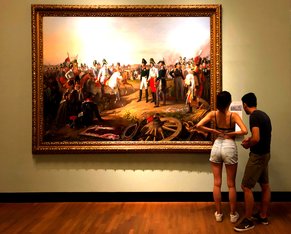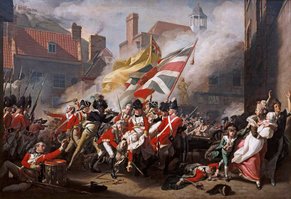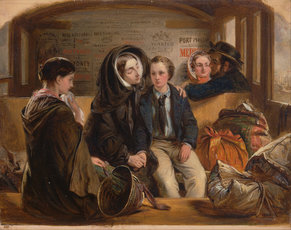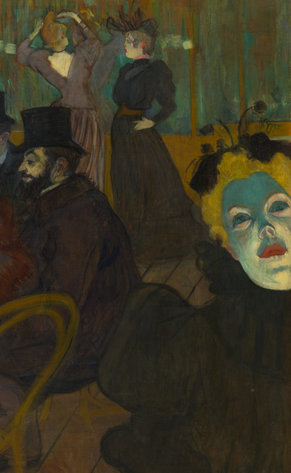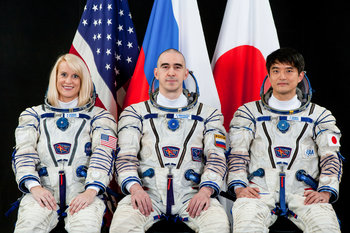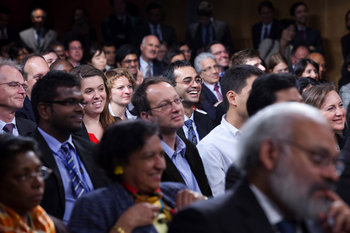Ancient Expansionism
The first Empire emerged more than 4000 years ago with the expansion of the second ancient empire of Mesopotamia known as the Akkadian Empire. This was followed by dozens of large empires in the Middle East, Asia and Africa before the emergence of the Roman Empire of 27 BC – 476 AD. As such, the policy, practice and ideology of imperialism is a persistent feature of history whereby powerful states tend to attack weaker societies and seek to assimilate, subjugate or extinguish their peoples.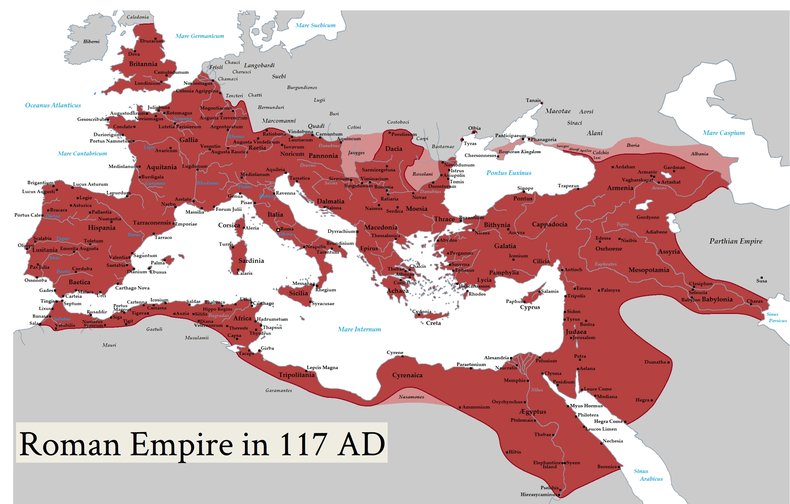
Middle Ages
In the middle ages, expansionism continued with a large number of empires rising and falling. In the late middle ages, European nations such as Spain and Portugal used naval superiority to establish far reaching colonies for the purposes of trade, plunder and the extraction of high value natural resources. This was often done under the pretense of spreading Christianity. These were large and far reaching empires that generated large significant profits. For example, the Spanish Empire conquered and incorporated the Aztec and Inca empires resulting in large scale transfer of wealth from the Americas to Europe.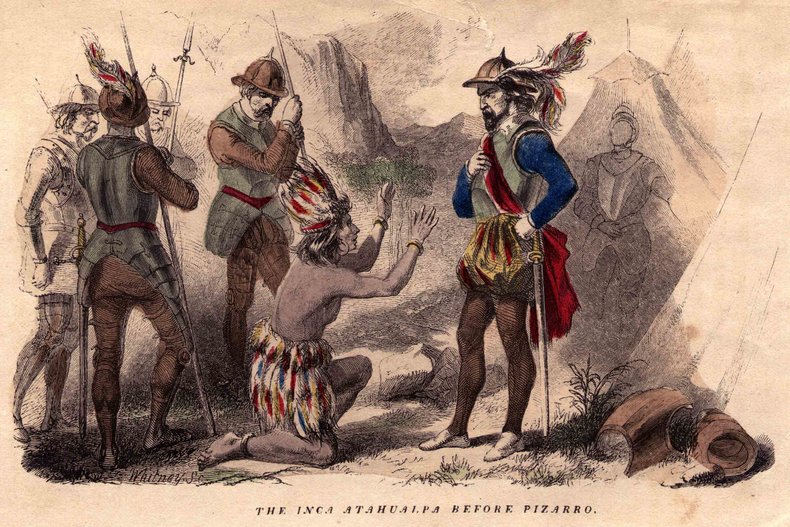
Age of Imperialism
The industrial revolution brought about an explosion of imperialism in the period 1760 - 1914 known as the Age of Imperialism. This was enabled by a vast power imbalance between nations with industrialized economies and military forces and pre-industrial societies. Imperialism suddenly became more profitable, or was viewed as such, as imperial possessions could be exploited for inexpensive raw materials produced under harsh labor conditions, including slave labor, to feed industrial production. This led to a competition between industrialized nations such as Great Britain, France, Germany, Belgium, Spain, Italy and Japan to conquer developing nations on a global basis. For example, 90 percent of Africa was under European control leading into WWI with Ethiopia and Liberia being the only remaining independent nations on the entire continent.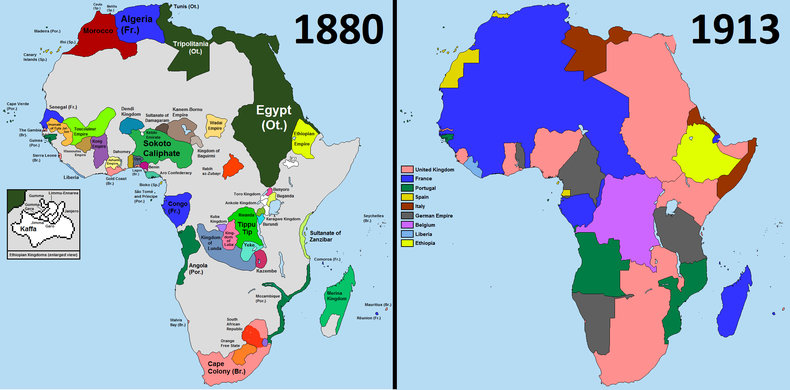
Gunboat Diplomacy
Gunboat diplomacy is the practice of using military force or the threat of military force to exert control or influence over foreign nations. For example, the United States forced Japan to open its markets to international trade in the 1850s with shows of superior military force that threw its society and economy into chaos and revolution.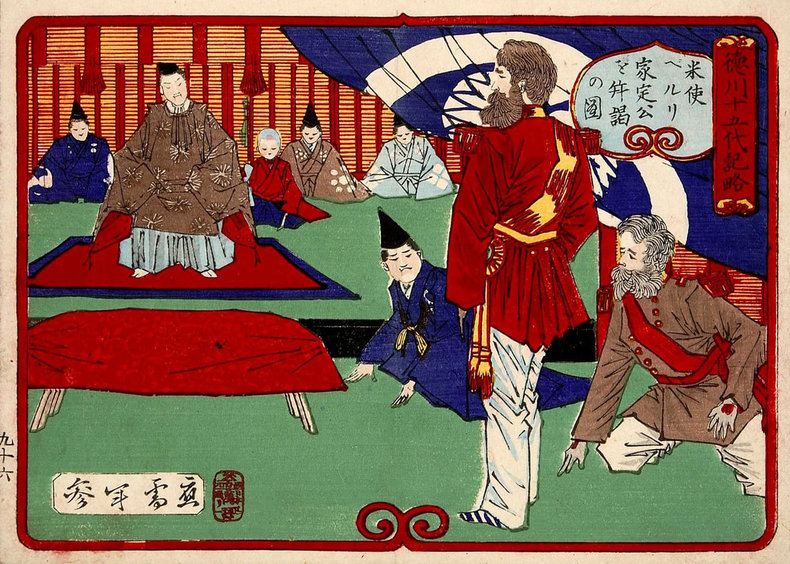
Settler Colonialism
Settler colonialism is the practice of establishing overseas settlements with the aim of developing resources and eventually overrunning and replacing the indigenous population. This involves large scale immigration from the imperialist country to the colony. The founding of the United States, Canada and Australia all resemble this type of imperialism.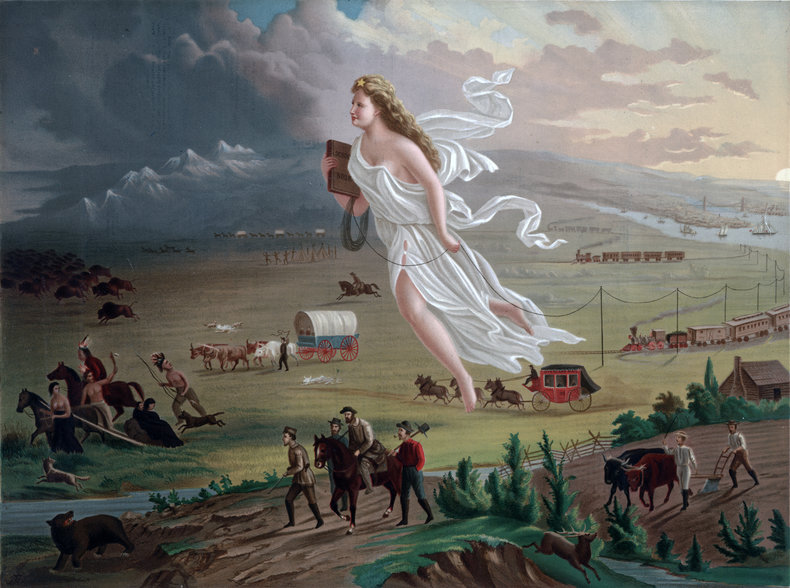
Exploitation Colonialism
Exploitation colonialism is imperialism aimed at procuring the natural resources of a place. Local labor would often be used under harsh and coercive conditions. Prior to the abolition of slavery, foreign slaves were often brought into colonies with exploitable natural resources. Even where slaves weren't used exploitation colonialism often resembled forced labor. For example, Belgium colonized the Congo from 1885–1960 with brutal systems whereby the government forced indigenous people into labor for private companies. This was largely aimed at the exploitation of resources such as rubber and ivory.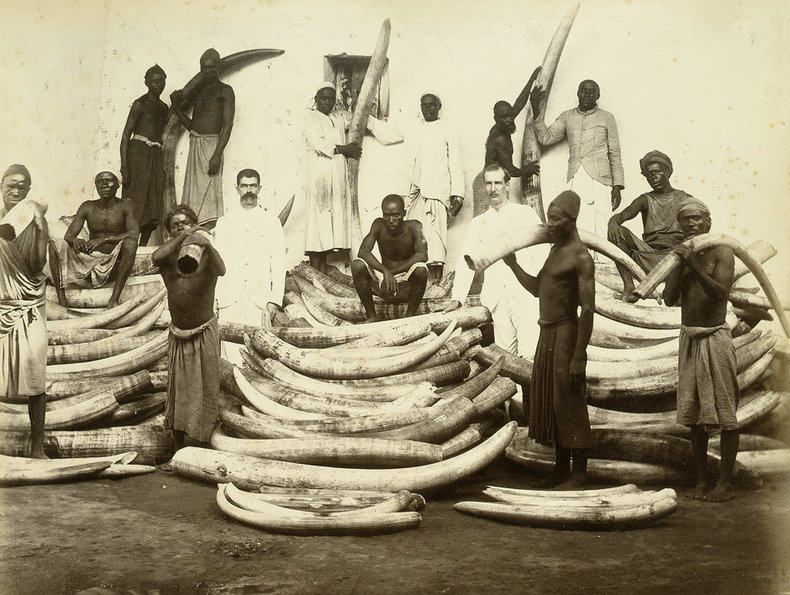
WWI
Leading into WWI, Europeans controlled 84% of the globe through their colonies and territories. With multiple European nations in the grips of aggressive expansionism and nationalism it is hardly surprising that war broke out in pursuit of global domination. Fighting other industrialized nations was much more difficult than invading lightly armed non-industrialized societies and communities in distant corners of the world. WWI resulted in 40 million civilian and military casualties. This was unbearable and resulted in changing views of war. WWI also drained the resources of the British Empire and Russian Empire. The German Empire and Austro-Hungarian Empire completely collapsed. More than a dozen independence movements succeeded during or just after the war while some empires expanded during the war, notably the Empire of Japan.Internationalism
I believe profoundly in two rules. Justice and mercy – they seem to me the foundation of all civilized life and society, if you include under mercy, toleration.In the wake of WWI, there arose discontent with 19th century approaches to imperialism and a growing sense that the collapse of the great empires was inevitable. Leonard Woolf, a British political theorist, pitched a remarkable idea -- that the profitable system of global trade created by imperialism could be secured without the costs and moral failings of invading foreign lands and suppressing independence movements -- that all that was required was influence, not control, over foreign lands to secure the wealth created by global trade. In a step to secure this vision, international organizations such as the League of Nations were established. This can be viewed as the beginnings of Neocolonialism (see below).
― Leonard Woolf
WWII & Decolonization
The causes of WWII are complex when you look at Germany and its economic collapse after WWI and the rise of the Nazis in the 1930s. However, if you look at the motivations of Japan, they are rooted in imperialism, unconstrained militarism and the nationalist idea that Japan was destined to control all of Asia-Pacific and perhaps more. In the years following WWII, the old imperial order essentially collapsed. The years 1945-1960 brought a flurry of independence movements, decolonization and nation building. The world realigned along ideological lines and the cold war had begun.Cold War
Communist ideology blames imperialism on capitalism and is ostensibly anti-imperialist. Nevertheless, in the aftermath of WWII the Soviet Union occupied numerous nations resulting in the division of Europe with independent capitalist countries on one side and occupied or puppet communist states on the other. The world slid into an ideological battle known as the Cold War that involved a system of mutually ensured destruction based on large numbers of nuclear weapons on both sides. This involved several full scale wars between capitalist and communist forces involving the United States, namely the Korean War and Vietnam War.Neocolonialism
Neocolonialism is the practice of using soft power as opposed to military force to establish control or influence over foreign societies. This can include the use of trade, trade agreements, foreign aid, international organizations, financial systems, investments, loans, infrastructure projects, information technology and foreign military bases. Neocolonialism is typically attributed to large countries and political unions such as China, the European Union and the United States.| Overview: Imperialism | ||
Type | ||
Definition | The practice of extending the power of a state over other societies and peoples using military or economic coercion or control. | |
Related Concepts | ||

